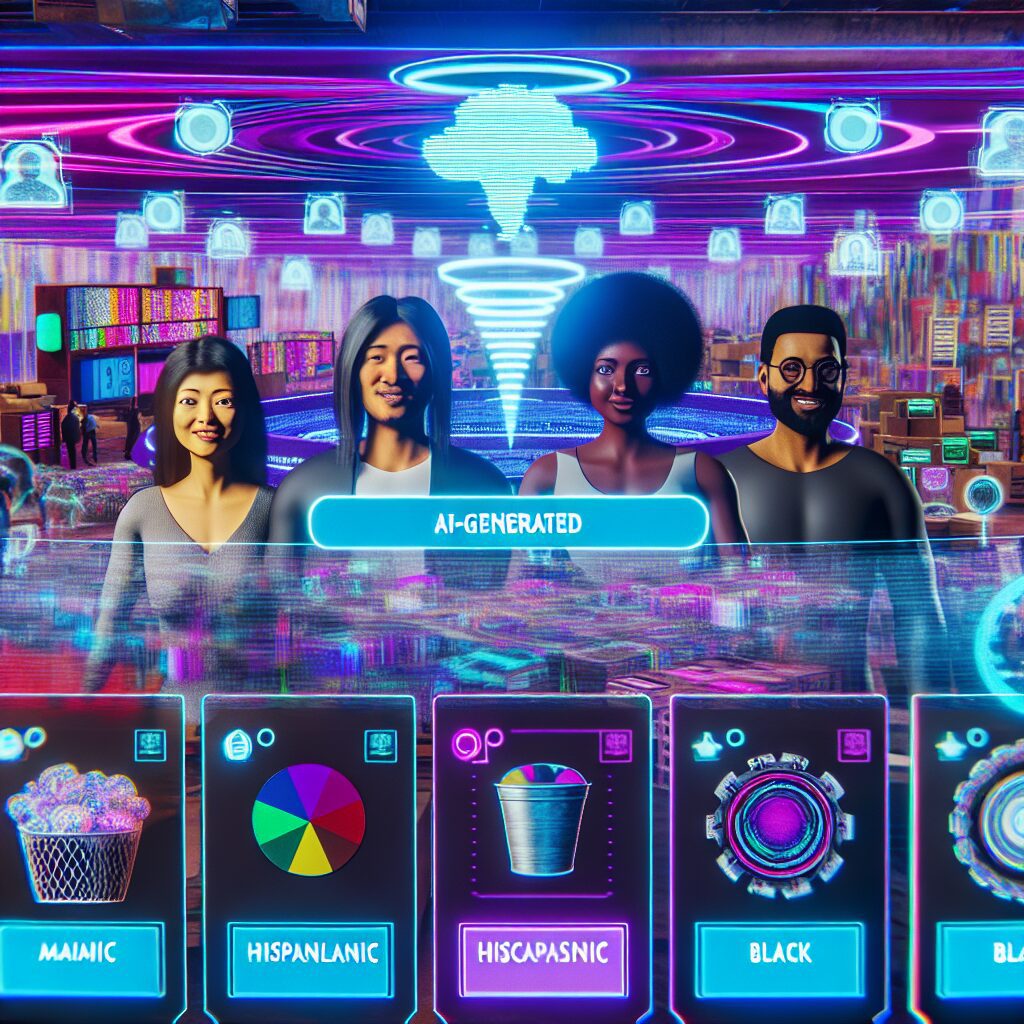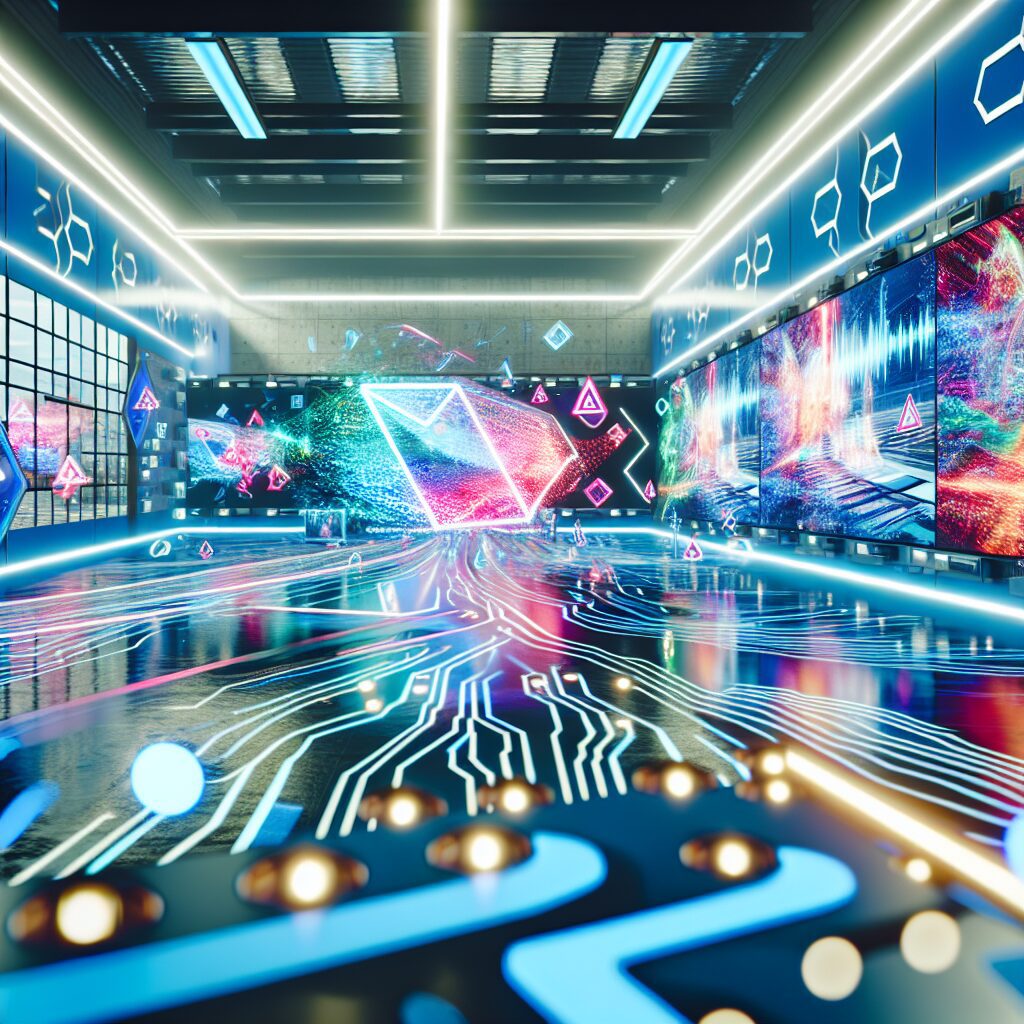
SoundHound AI Stock Rises After Price-Target Increase Analysis
“`html SoundHound AI Stock Rises After Price-Target Increase Analysis In a rapidly evolving technological landscape, Artificial Intelligence (AI) continues to

“`html
In an era where artificial intelligence (AI) is transforming the digital landscape at an unprecedented pace, the demand for transparency in AI-generated content is skyrocketing. Creators on Itch.io, a popular platform for indie game developers, are now grappling with new disclosure requirements regarding the use of generative AI in their asset creation. This initiative seeks to foster trust, authenticity, and fairness in the digital art domain, ensuring consumers are well-informed about the content they engage with.
In recent years, generative AI has emerged as a powerful tool for creators within the indie game industry. From designing elaborate landscapes to crafting unique character designs, AI-driven tools have enabled artists to push boundaries like never before. These applications are not just transformative but also time-saving, allowing developers to focus on refining gameplay mechanics and storytelling elements.
However, with great power comes great responsibility. The ease with which AI can generate artwork or assets raises questions about the originality and authenticity of the creative process. As such, platforms hosting this content, like Itch.io, are now implementing guidelines to ensure creators clearly disclose the extent of AI’s involvement in their work.
The disclosure mandate is a straightforward yet groundbreaking policy that calls for transparency. Here’s what it entails:
These requirements aim to equip consumers with the knowledge needed to make informed decisions while supporting fairness and integrity within the marketplace.
For consumers, particularly those passionate about originality and the human touch in artistry, this regulation is a welcome change. It empowers customers to distinguish between fully handcrafted and AI-assisted works, fostering a marketplace that celebrates diversity in content creation methods.
For creators, the mandate can be seen as a double-edged sword. While it ensures accountability and transparency, it also imposes an additional layer of responsibility that creators must uphold. For many, this might mean re-evaluating their current workflows and adjusting their marketing strategies to align with the new requirements.
Implementing such a disclosure policy brings forth several challenges and opportunities:
As the landscape evolves, creators who embrace transparency and innovation stand to benefit, establishing trust with their audience while showcasing their genuine artistry and skillset.
The enforcement of AI disclosure aligns with a broader global trend towards transparency in content creation. Transparency is not just a policy but a cornerstone of trust between creators and their audiences. It assures consumers that they are engaging with authentic content, which, in turn, enhances the credibility of the platform.
Moreover, with the increased concern over deep fakes and AI-generated misinformation, such transparency initiatives reassure the public that platforms like Itch.io are committed to ethical standards and consumer protection.
As we project into the future, it becomes clear that policies like this will likely become standard across multiple digital content platforms, not just within gaming or asset creation. The intersection of AI and creativity will continue to blur traditional lines, necessitating clear criteria for transparency and accountability.
Creators, platforms, and consumers must remain active participants in the dialogue surrounding AI use. Only through open communication and rigorous standards can we ensure a fair and vibrant digital creative ecosystem.
The new generative AI use disclosure requirements for Itch asset creators marks a pivotal step in the evolution of digital content transparency. By mandating such disclosures, Itch.io leads the charge in fostering an environment of trust, empowerment, and fairness. As AI continues to permeate every aspect of content creation, embracing transparency practices will not only uphold ethical standards but also champion the innovation and creativity that define the indie game sphere.
For creators, navigating this change means adapting strategically to maintain the integrity and authenticity of their offerings in a rapidly evolving industry.
“`

“`html SoundHound AI Stock Rises After Price-Target Increase Analysis In a rapidly evolving technological landscape, Artificial Intelligence (AI) continues to

“`html Explore Google’s Innovative Generative AI Video Model Now Available In the ever-evolving world of technology, Google has once again